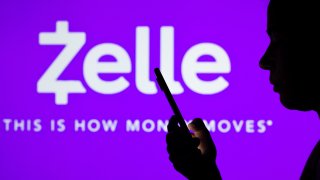Recent Banking Outages: Causes, Impact, and How to Stay Prepared
Banking outages have become a common concern for customers relying on digital banking and payment platforms. Recent disruptions have affected thousands of users, leaving payments delayed and balances inaccessible. In this article, we explore the causes of these outages, how they impact daily transactions, and what you can do to stay ready for potential issues.

What Are Banking Outages?
Banking outages refer to unexpected interruptions in the services provided by banks or financial technology platforms. These outages can result from system failures, software updates gone wrong, or third-party provider issues. Customers often experience problems such as being unable to transfer funds, pay bills, or check their account balances.
Recent High-Profile Outages
One notable example is the recent Zelle outage that disrupted payments for users at multiple banks. According to CNN, the incident originated from an issue with Fiserv, a key technology provider to many banks and Zelle itself. Users reported that payments were marked as 'pending,' causing concerns about important transactions like rent or bills not processing on time.
This problem was not restricted to a single region. As stated by NBC Chicago, outages were reported in major U.S. cities, from Chicago and Los Angeles to New York and Houston. Over 1,000 users notified outage trackers within hours. Downdetector, a platform for tracking service disruptions, showed widespread issues stemming from the core digital payment network.
Why Do Banking Outages Happen?
Most banking outages occur because of:
- Software upgrades or changes that introduce errors
- Failures with third-party transaction processors
- Cybersecurity incidents, though not every outage is related to a security breach
- High user demand stressing infrastructure
In the case of Zelle, according to CNET’s reporting, the disruption resulted from a third-party provider issue, not from hacking or fraud. Zelle provides payment services through over 2,000 banks and credit unions, so when an outage hits a core provider, it can ripple through the entire network.
How Outages Affect Consumers
Banking outages can disrupt daily life. Some common problems include:
- Delays in sending or receiving payments
- “Payment pending” notifications causing uncertainty
- Difficulty accessing balances or transaction histories
- Missed bill payments and potential fees
For those relying on instant payments for bills, rent, or freelance work, these disruptions can have significant financial consequences. It's vital to know alternative ways to manage transactions when these issues arise.
Staying Prepared for Future Outages
While banks and financial platforms work to minimize outages, customers can take steps to protect themselves:
- Keep backup payment options such as credit cards, checks, or another peer-to-peer payment app like Venmo or Cash App.
- Monitor bank news and outage notification platforms for real-time updates.
- Schedule important payments in advance to avoid last-minute issues.
- Contact customer service if funds are stuck or transactions fail to process.
If you need immediate alternatives during a disruption, consider guidance from CNET’s advice on peer-to-peer payment options.
Conclusion
Banking outages are disruptive, but understanding the causes helps you prepare for and navigate these situations. Stay informed through reliable news sources and always keep a backup payment plan in place. With digital banking, staying proactive is the best way to ensure your financial life runs smoothly, even when the unexpected happens.